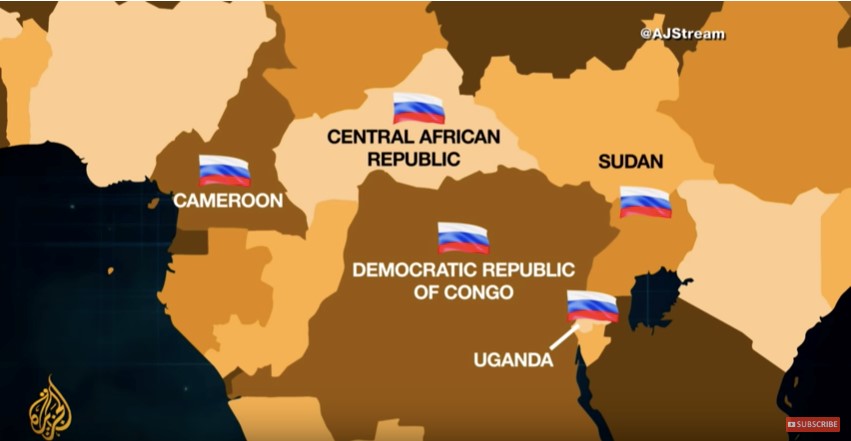Byline: Streisand Neto, MSc International Politics
During the height of the Cold War, the former Soviet Union had considerable importance and ties with different states in Africa, for example, Congo and Angola, where conflicts were apparent: the Soviet Union worked closely with factions in preserving their communist ideals. However, at the end of the Cold War, the Soviet Union collapsed as did their ties with those states.
In spite of this, today’s commentary on Russia portrays them as recapturing their lost influence by connecting again with African states. Tomi Oladipo, an African Security Correspondent, addresses Russia’s cooperation with the Central African Republic by providing them military arms in exchange for CAR’S minerals. The UN put forward an arms embargo against CAR. However, Russia still supported them with military aid, by stating the agreements were part of a “mining exploration” and to be “mutually beneficial.” It accentuates a common trend, and if you consider America’s isolationist strategy, there seems to be a strong impetus from Russia and other non-Western countries to exert and expand their influence, due to the vacuum left by America. Russia’s strategy is contested by analysts, arguing against the so-called transformative approach, believing it to echo a more symbolic nature of Russian power. These economic partnerships does lead one to wonder whether Russia is trying to imprint hegemony on the continent.
There have been noticeable cases of African countries maximising these economic ties such as Kenya. More African states must follow Kenya’s route to warrant the notion of ‘mutual benefits.
Russia has established many military partnerships that include Congo, Zimbabwe, and the Central African Republic. All these nations possess materials, which benefit external contractors. Olga Kulkova, Senior Fellow at the Institute for African Studies, highlighted the reinvigoration of relations with countries, for example, Zimbabwe who aligned with the Soviet Republic. She referenced Russia’s interest in Zimbabwe’s mining industry, where Russian corporations such as Rostec are heavily interested. The establishment of bilateral agreements and projects has caused the Western influence to wane. Aaron Ross, a writer for Reuters, addressed the shift in power dynamics between the great powers, with Russia “muscling in on a country dominated by France,” that is CAR.
In essence, Russia’s cooperation with African nations could be interpreted as adapting to the changes to solidify these partnerships for both parties to benefit. Macdonald Dzirutwe, a writer for Reuters, emphasised that the Zimbabwean President, Emerson Mnangagwa promised to “kickstart the economy”. Similarly, Sergey Lavrov, the Russian Foreign Minister, discussed the prospect “for military and technical cooperation”.
It signifies economic cooperation, which closely ties into an article I wrote earlier concerning China’s Belt and Road Initiative with Chinese corporations establishing relations with developing countries. It does raise another fundamental question – does it extend to the core and periphery relationship?
It derives theoretically from Immanuel Wallerstein, where he accentuates the unequal power relations between developed and developing states. The strength here, is Ronak Golpadas, a director for Signal Risk asserts the tendency of the West to paint emerging countries such as Russia, as “evil” concerning Russia’s impetus in the region. Even with the scepticism from the West, Russia has not fully expanded their influence in Africa. There has not been evidence of Russia playing hard power with African states. Abdi Latif Taher, a reporter for Quartz, highlighted the political changes in the African region, which has altered or somewhat made it harder for Russia to be a pivotal force. Taher’s point holds strong validity since it qualifies the argument of African states possessing agency in the relationship. There have been noticeable cases of African countries maximising these economic ties such as Kenya. More African states must follow Kenya’s route to warrant the notion of ‘mutual benefits.’
Is it not just the case of another scramble for Africa’s resources? I would argue so, yes. The term ‘mutual benefits’ gets tossed around quite a lot by the developed countries when working with non-Western countries. If you consider Russia’s focus in the region, as mentioned above, it does lead one to suggest Russia’s strategy comes at the expense of African sovereignty on their natural resources.
